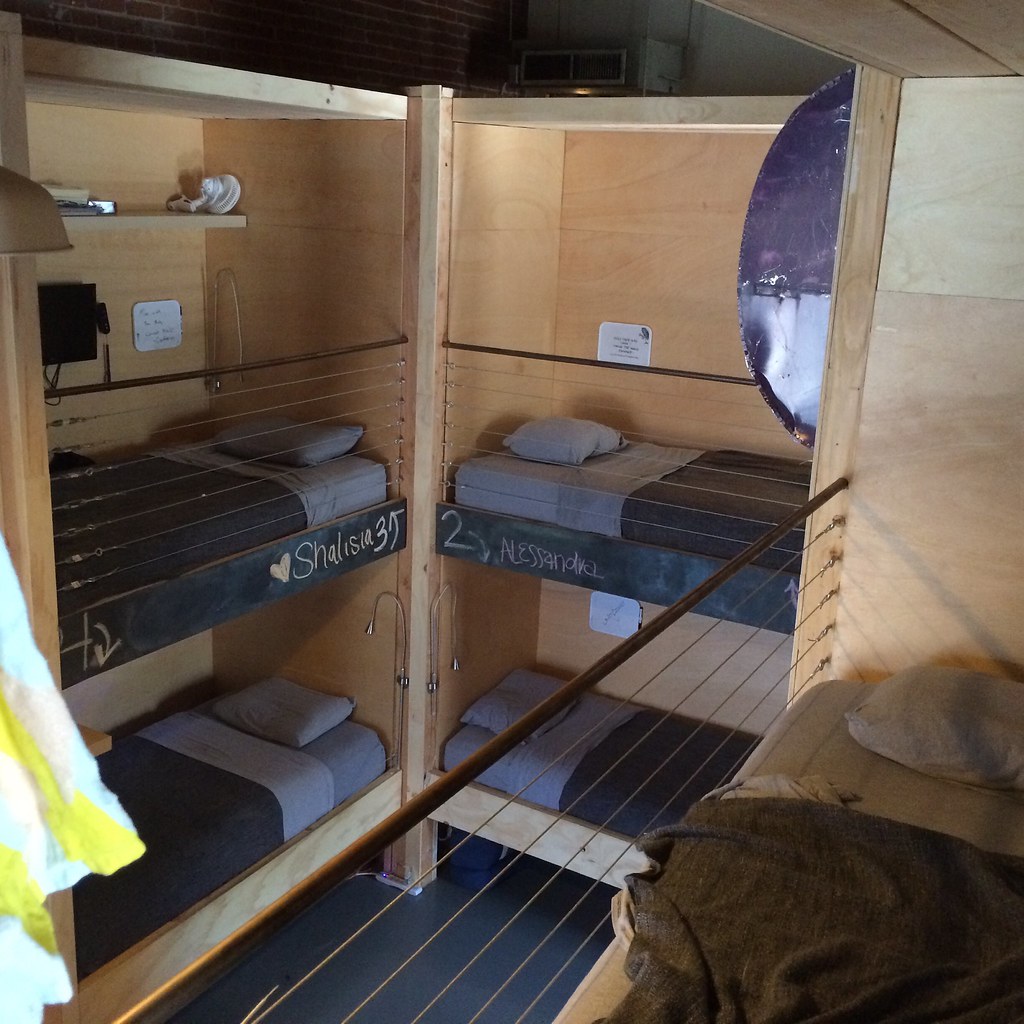Given the extraordinarily high cost of living in the Bay Area, many prospective residents are forced to look for alternatives to a single-family home, such as commuting for hours each day or squeezing a family of four into one bedroom. Thirty-four-year-old Elvina Beck is offering another potential option: PodShare.
Beck’s creation is a network of affordable dorm-style living spaces that offer users a bunk-bed and amenities, like wifi and ramen, in one of six different locations.
“Podshare is a byproduct of high rents,” Beck wrote on her website. “My solution to the rising prices in neighborhoods I’ve wanted to live in was a simple math equation. Add up the rents, utilities, staffing costs and divide. But not by the traditional 2-3 [residents] but by 10 so that the price is affordable for all.”
Designed like a gym membership, the housing subscription service has attracted “pod-estrians,” predominantly young adults, to six different locations across California. The company stresses access, not ownership, as residents have to sacrifice their privacy in exchange for more affordable housing. PodShare caters to residents who can’t afford the risks of mortgage and leases, or aren’t able to purchase a home because they don’t have an adequate credit score or proof of income. It is a community and co-working space, but it also has its share of temporary travelers.
The first pod sprang up in Los Angeles, where Beck grew up, and the concept spread from there. Podshare now has additional locations in Venice Beach, Los Feliz, San Francisco, Westwood and Hollywood. Beck and all of the PodShare staff live in pods as their main residences, going from location to location when as they desire.
“Some people get worn out by others, but I love talking to people and being around people,” Beck told The Daily Dot. She said PodShare is also a solution to ending loneliness and building a community. Some podshare residents make lifelong friends, and others have even gotten tattoos to show their dedication to the community.
Kyle Wang ’22 isn’t so sure. He believes that privacy ultimately outweighs the benefits of low-cost housing near the center of a city.
“I think these kinds of hostel-ish places are cool and all but I’d be hesitant to live permanently in a space like that,” he said. “These living situations are fine if they’re temporary, but I enjoy privacy too much to share a room with that many other people for an extended block of time.”
Beck’s vision for PodShare began in 2010 during the housing crisis, where she herself faced the struggle and risks of paying for housing. She established PodShare in 2012.
For only $50 a night, anyone can have a bed and access to a TV, laundry machines, wifi and more at one of PodShare’s Hollywood, Westwood, Los Feliz or Downtown Arts District locations. Prices go down for longer stays, as low as $280 a week or $1000 a month. Other locations are pricier, with the Venice location charging $60, $350 and $1400 for a night, week and month, respectively. The San Francisco location doesn’t have as many open beds and only accepts residents monthly.
Ultimately, Beck aims to bring her service worldwide.
“The goal is to empower the global citizen and live anywhere across the world for one monthly price,” she told CNN. “A $1,000 a month [membership] should get you a chance to live from here to Taiwan back to Boston. You cover the flight and we’ll cover the housing. It’s all included.”
While young Stanford graduates may find usefulness in a service like Podshare, they are not the only ones affected by high housing prices. For underprivileged families with children and other restrictions, a company like PodShare is not a sufficient solution.
“The reality is that many Stanford students who stay in the area after graduating have relatively high salaries, and are not the people suffering most from the housing crisis,” wrote former SCOPE 2035 media rep Shelby Parks ’19 in an email to The Daily. “In fact, recent Stanford grads are contributing to the crisis if nothing else by displacing residents whose families have lived here for decades.”
Parks attributes the flaws in the current housing system to what she sees as lax anti-rent-gouging laws and unfair eviction laws statewide.
According to the 2018 Annual Homeless Assessment Report, California has the highest rate of homeless people who are unsheltered: around 68.9% of the 129,972 homeless people in the state.
Despite PodShare’s success, even Beck doesn’t see it as a long-term solution to the housing crisis.
“I think if prices become more affordable, PodShare will die,” she told CNN. “And that’s okay, because I think it’s here to solve a problem, and if the rents ever became normalized, then I don’t know if PodShare would be necessary because everyone would just get their own private place — and that’s okay.”
Beck did not respond to The Daily’s request for comment.
Contact Callia Yuan at callia.yuan ‘at’ gmail.com.
